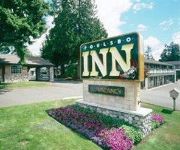Facts and Data
Webpages:
Official Unesco Page
World Heritage in the United States
Olympic National Park (U.S. National Park Service)
Protectedplanet.net
Basis Data:
Unesco World heritage since: 1981
Size of heritage:
Coordinates:
Longitude: -122,551°
Latitude: 47,748°
Summary
Located in the north-west of Washington State, Olympic National Park is renowned for the diversity of its ecosystems. Glacier-clad peaks interspersed with extensive alpine meadows are surrounded by an extensive old growth forest, among which is the best example of intact and protected temperate rainforest in the Pacific Northwest. Eleven major river systems drain the Olympic mountains, offering some of the best habitat for anadromous fish species in the country. The park also includes 100 km of wilderness coastline, the longest undeveloped coast in the contiguous United States, and is rich in native and endemic animal and plant species, including critical populations of the endangered northern spotted owl, marbled murrelet and bull trout.
Location on Map
Show bigger map on Openstreetmap
Introduction
Olympic National Park, located in the state of Washington, is a UNESCO World Heritage site renowned for its diverse ecosystems and stunning natural beauty. Spanning over 922,651 acres, the park encompasses a wide range of landscapes, including rugged mountains, old-growth forests, pristine lakes, and a rugged coastline. This article will delve into the history of Olympic National Park and provide an overview of its current state.
History
The history of Olympic National Park dates back thousands of years, with evidence of human habitation in the region dating back to at least 12,000 years ago. Native American tribes, including the Quileute, Hoh, and Makah, have long called this area home, relying on its abundant natural resources for sustenance.
In the late 19th century, European settlers began to explore and exploit the region's resources. Logging and mining activities threatened the area's unique ecosystems, prompting conservation efforts. In 1909, President Theodore Roosevelt designated Mount Olympus National Monument, protecting the mountain and surrounding areas. This marked the first step towards the establishment of Olympic National Park.
In 1938, President Franklin D. Roosevelt signed a bill establishing Olympic National Park, ensuring the preservation of its diverse ecosystems. The park's boundaries were expanded over the years, and in 1981, it was designated as a UNESCO World Heritage site, recognizing its outstanding universal value.
Current State
Olympic National Park is a haven for nature enthusiasts, offering a wide range of recreational activities. The park's diverse ecosystems support an array of plant and animal species, including the iconic Roosevelt elk, black bears, mountain goats, and the endangered northern spotted owl.
The park's centerpiece is the Olympic Mountains, a majestic range that reaches heights of over 7,980 feet. These mountains provide ample opportunities for hiking, mountaineering, and backpacking, with trails catering to all skill levels. The Hoh Rainforest, located on the western side of the park, is another popular attraction, known for its lush vegetation and moss-draped trees.
Olympic National Park also boasts a stunning coastline along the Pacific Ocean. The rugged shoreline is dotted with sea stacks, tide pools, and sandy beaches, providing a picturesque setting for beachcombing, tidepooling, and wildlife watching. The park's coastal areas are home to various marine mammals, including seals, sea lions, and even migrating gray whales.
Efforts to preserve and protect Olympic National Park are ongoing. The park's management focuses on maintaining the delicate balance between conservation and recreation. Measures are in place to minimize human impact on the park's ecosystems, including restrictions on camping and hiking in sensitive areas.
Conclusion
Olympic National Park, a UNESCO World Heritage site, is a testament to the natural wonders of the state of Washington. Its rich history, diverse ecosystems, and breathtaking landscapes make it a must-visit destination for nature lovers and outdoor enthusiasts. Whether exploring the towering mountains, wandering through ancient forests, or strolling along the rugged coastline, visitors to Olympic National Park are sure to be captivated by its beauty and tranquility.
Hotels and places to stay
THE POULSBO INN
CLEARWATER CASINO
Videos from the area
Videos provided by Youtube are under the copyright of their owners.








